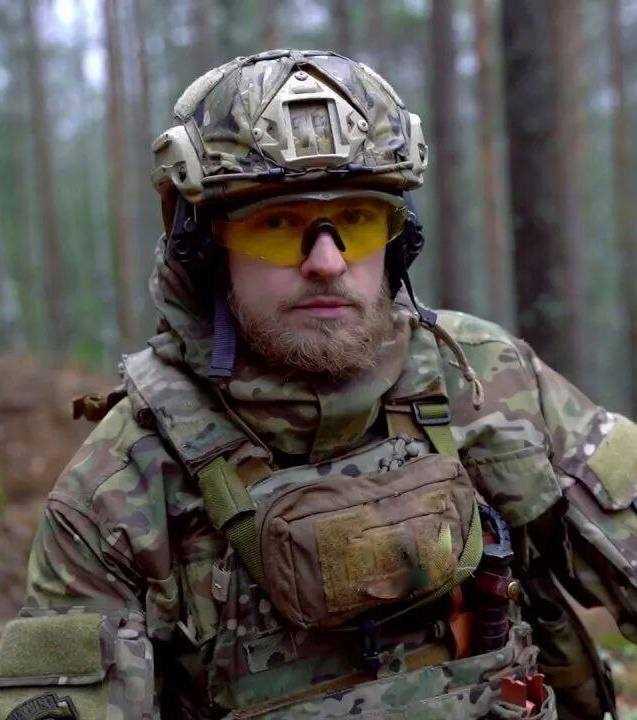
Rusich Fighter Yan Petrovsky’s Escape From Russia
An alleged key fighter, founding member and leader of Russia’s best-known neo-Nazi unit Rusich, Yan Petrovsky, has been detained in Finland. Kyiv has sent an official request to Finnish authorities asking for the extradition of the 36-year-old Russian neo-Nazi. Our investigation explores the many ties of Petrovsky to the Nordic and Russian neo-Nazi community.

Finland’s Cabinet of Horrors
This article was first published by the Rosa Luxemburg Stiftung on Jul 13th, 2023 – by Pinja Vuorinen. The Finnish parliamentary elections were held on April 2, but it has taken almost three months for a new government to be
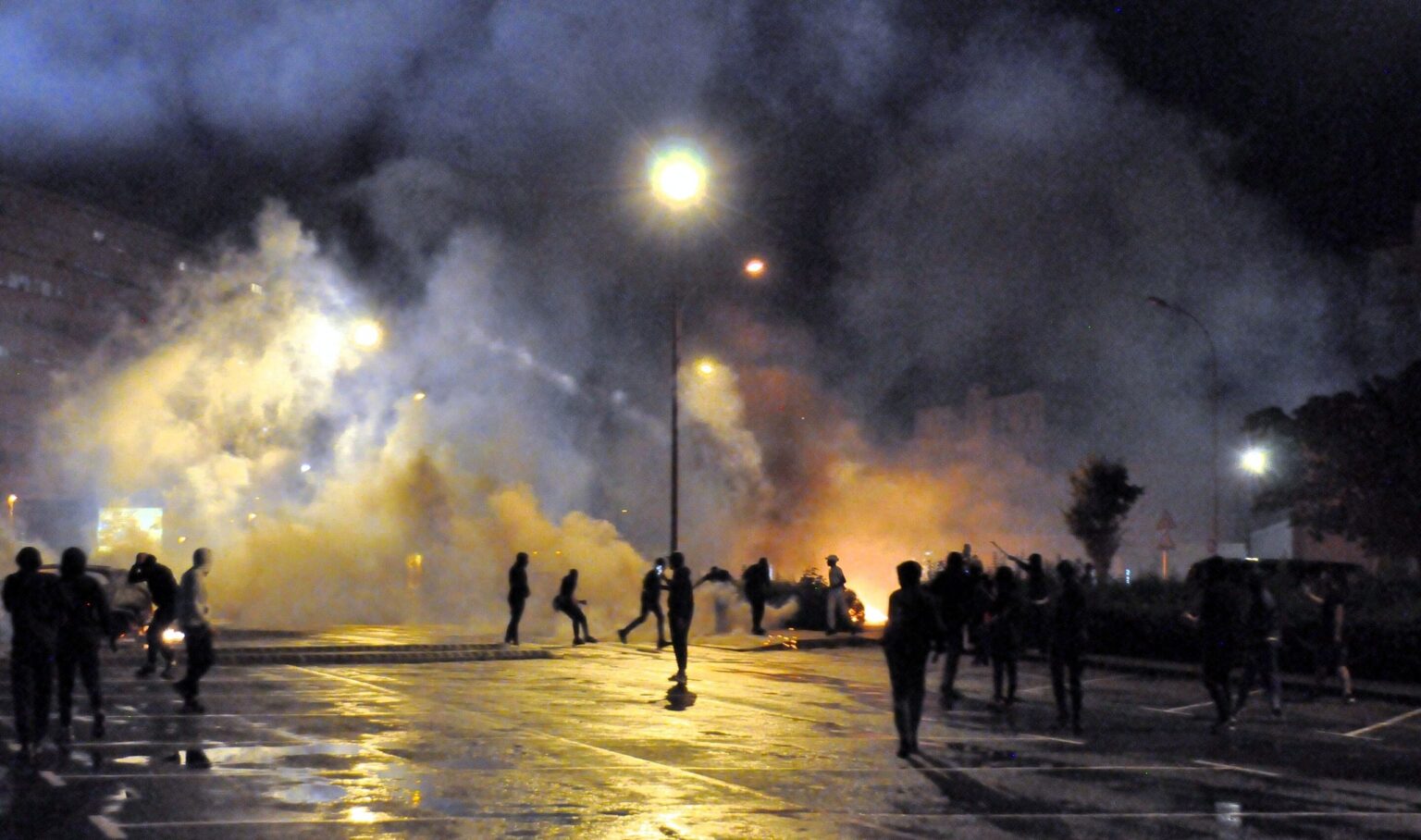
I’ll put a bullet in your head!
On June 27th, 2023, a 17-year-old boy, Nahel, was shot dead by a police officer during a traffic stop in Nanterre, a western suburb of Paris. A witness filmed the scene; the policeman yells, “I’ll put a bullet in your
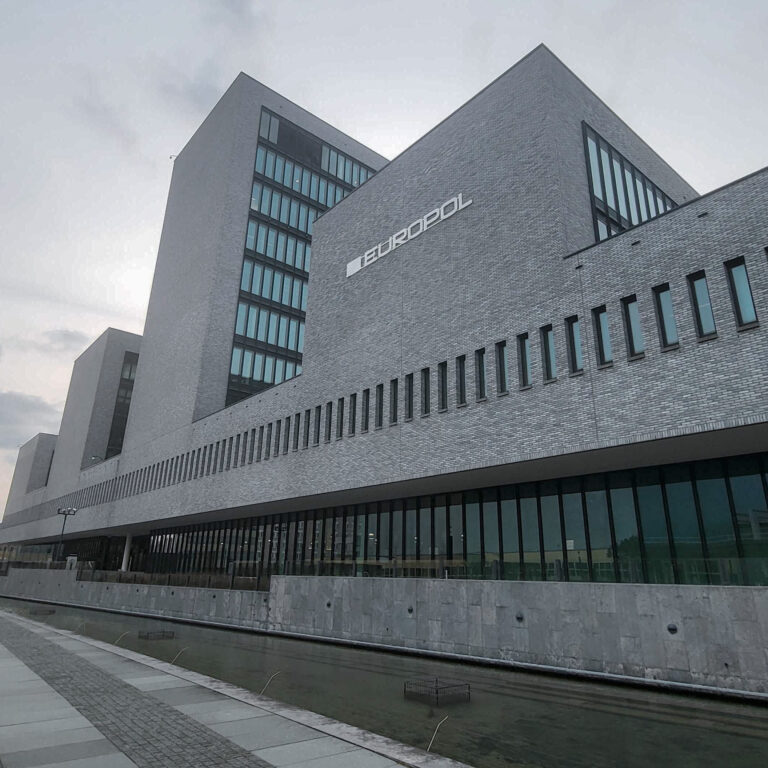
EUROPOL Report Covers the European Right’s Stance on Ukraine
Europol has published a report on terrorism. It mentions the far-right and the war in Ukraine There has been a significant split among the European far-right on the issue of the war in Ukraine. This is based on Europol’s European

The Greek Far Right after the rightward shift in the election
Written by Signal/ Researching and Confronting the Far Right The Greek election results are naturally multifaceted and open to various interpretations. We witnessed an overt defeat of Syriza and MeRA25, thereby of a large part of the Left. We also
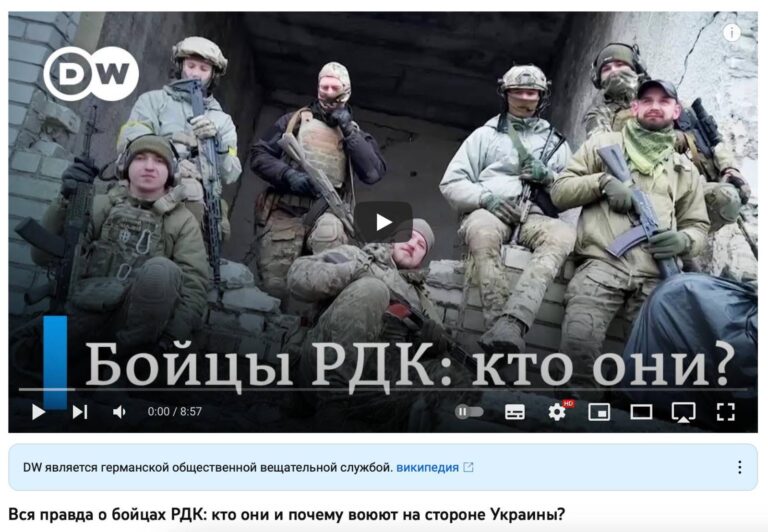
The whole truth about the fighters of the RDC: Some of them are neo-nazis
The Russian-language editorial board of the German state media company Deutsche Welle published a video report about the Russian Volunteer Corps (RDC), which did not mention that neo-Nazis were serving in the unit. The relevant video was published on May
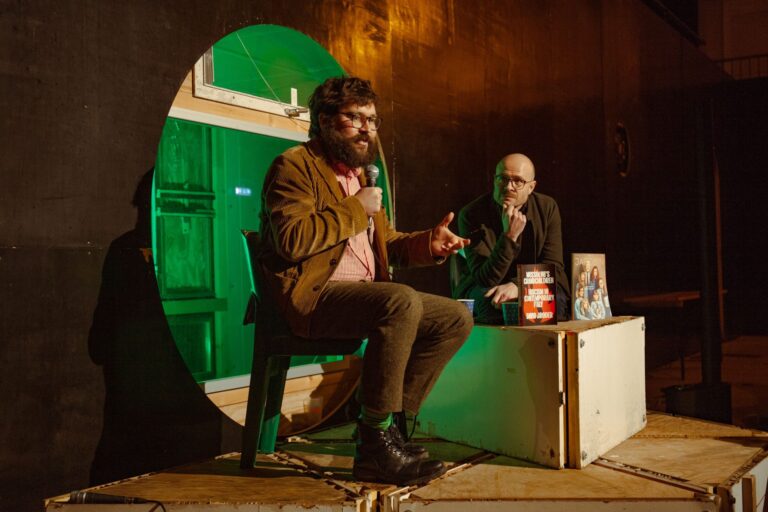
The Far-right Wants to Make the Rest of Europe Like Italy
Interview by Antifascist Europe In September of last year, Italy’s Fratelli d’Italia party, considered the successor to Benito Mussolini’s Fascist party, gained political power. British historian and Jacobin editor David Broder recently published a new book on contemporary Italian fascists.
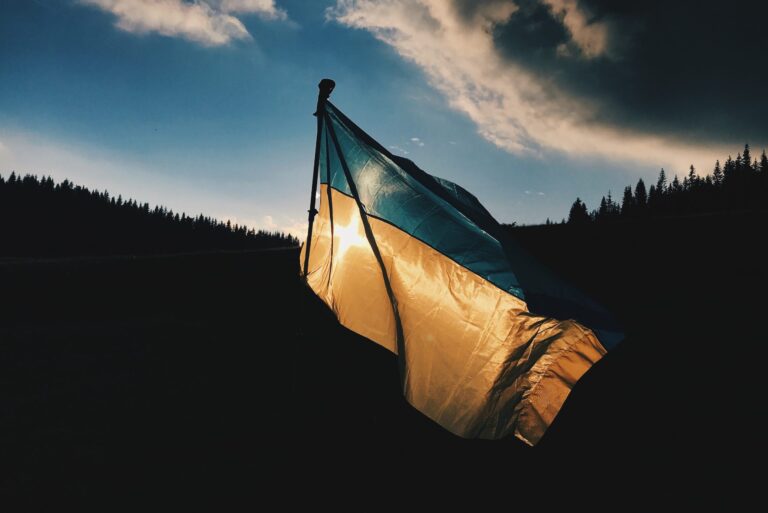
The Russian far-right splits over Ukraine
The original publication under the headline “Die Ukrainefrage spaltet” was published in the German antifascist magazine Der Rechte Rand, November/December 2021, pages 46-47. Translated by the Antifascist Europe team with the consent of the magazine’s editors. The author of the
Event: Antifacist Matinee on 3.7.2022
Time: 11 a.m. to 3 p.m. Place: Red Salon in the Volksbühne at Rosa-Luxemburg-Platz in Berlin Free admission – The event will be held in English. In the Red Salon of the Volksbühne, the anti-fascist research project Antifascist Europe will present itself. Antifascist Europe comprises activist initiatives, journalists and academics from all over Europe and monitors the development of transnational networks of far-right and right-wing populist parties, including in the European Parliament, as well as neo-Nazi and fascist groups. We
A marginal phenomenon for now
Original text by Damian Lawlor, Offaly and Dieter Reinisch, published in German by junge Welt on 24 April 2022. Translation by Joshua Rahtz Historical reasons, apart from a brief episode in the 1930s, a fascist movement has never been able to establish itself in Ireland. Currently the National Party is seeking influence—but with limited success. While right-wing and far-right formations such as Le Pen’s Front or Rassemblement National in France, Vlaams Belang in Belgium, and Vox in Spain have steadily
“Copy-and-Paste” Terrorism in Buffalo
By Bjørn Ihler for Antifascist Europe In the week since the terrorist attack that unfolded in Buffalo, New York on 14 May, we’ve dissected manifestos, combed through chat logs, and studied the background and development of yet another terrorist who was driven to kill by the same kind of hatred that has already driven so many others. The terrorists’ pattern is being repeated, and with it the pattern of pundits, researchers, analysts, and journalists scraping through the bits of information
How Foreign Far-Right Volunteers Are Arriving to Fight in Ukraine
Antifascist Europe presents a report on the activities of foreign far-right volunteer fighters who have flocked to Ukraine since the invasion of Russian troops. It includes the results of monitoring public sources during the first 50 days of the war as well as an analysis of existing publications on the nature of the phenomenon of right-wing volunteerism in Ukraine. The report is an attempt to construct a chronological sequence of far-right militant involvement in combat operations, a brief overview of
Germany’s anti-Covid Protests: Dangerous Self-Victimization
This article takes a look at the protests against the Corona restrictions and vaccine mandates in Germany during the Covid-19 pandemic and explains the affective dynamics behind them. After identifying far-right actors as central agitators and promoters of Covid-related conspiracy narratives and introducing the concept of affect for a general audience, it points out how self-victimization is the central affective dynamic behind the anti-covid movement in Germany.
Presidential Elections in France
The timing couldn’t be more fortuitous: as the war in Ukraine unsettles political certainties across Europe and Emmanuel Macron seeks to assert himself in the diplomatic arena, voters will head to the polls for the first round of France’s presidential election on 10 April. The second round is scheduled for two weeks later. In the midst of an unexpected war and a moderate economic recovery, the French electorate will decide whether Macron gets five more years to continue down his
Putin claims that he wants to “denazify” Ukraine. Yet, the Kremlin’s best friends in Europe for many years have been the far-right.
Original text by Dmitriy Vachedin, posted on Meduza on 13 March One of the Kremlin’s declared goals in attacking Ukraine is the “denazification” of that country. According to the official version, the Ukrainian authorities have been under the influence of neo-Nazis for the past few years. Meanwhile, since the annexation of Crimea, the Moscow government has had no better friends in Europe than the far-right parties of Germany, France, Italy, and Austria. Functionaries of these parties who came to the
The European Far-Right and the Ukraine war: some early observations
This is an overview of the initial reactions of some European far-right voices on the Ukraine war as expressed in a sitting of the European Parliament (EP) on 1 March 2022, which opened with a speech by Ukrainian President Volodymyr Zelenskyy.
Hammerskins Worldwide
This article is part 6 of 7 in the Hammerskins Series. This series was originally published in German via Exif – Recherche & Analyse, and gives us an in-depth look into one of the oldest and most stable neo-Nazi organisations worldwide. The sixth part of the series delves into the transnational aspect of the organisation and associated problems they face because of it. Part 1 of this series draws a larger picture of the network, its history, and its organisational
The Hammerskins in the context of the ‘NSU Complex’
This article is part 5 of 7 in the Hammerskins Series. This series was originally published in German via Exif – Recherche & Analyse, and gives us an in-depth look into one of the oldest and most stable neo-Nazi organisations worldwide. The fifth part of the series sheds light on the role of Hammerskins in the ‘NSU Complex’. Part 1 of this series draws a larger picture of the network, its history, and its organisational infrastructure. Part 2 explains the
Russian anti-fascists oppose the war in Ukraine
On 24 February 2022, Russia invaded Ukraine and a few days later adopted a law establishing criminal liability for spreading information about the use of Russian Federation Armed Forces or their discrediting. In fact, the law is used to suppress the freedom of speech and press, to terminate the activities of many media, to block the access to social media and to oppress anti-war protests in Russia. As a reaction to this, Russian anti-fascists published a joint statement: Russian anti-fascists
Hammerskins’ cashflows and business operations
This article is part 4 of 7 in the Hammerskins Series. This series was originally published in German via Exif – Recherche & Analyse, and gives us an in-depth look into one of the oldest and most stable neo-Nazi organisations worldwide. This fourth part of the series analyses how all of their activities are funded via multiple streams of revenue. Part 1 of this series draws a larger picture of the network, its history, and its organisational infrastructure. Part 2
Terror, violence and race war
Article 3 of 7 in the Hammerskins Series
Racially motivated brutal attacks, manslaughter and murder are commonplace throughout the 30-year history of the Hammerskins. Many members have been convicted for assault, illegal firearms possessions or similar offences.
Urgent Note on Our Reporting on Russia & Ukraine
Ukraine has since February 24th, 2022 been under siege. Due to the conditions of war resulting from the Russian invasion, we cannot at this time provide accurately validated and verified data and information on the current situation in neither Ukraine nor Russia. The Russian regime is through warfare, crackdowns and legislation suppressing all independent and free media in both countries, this affects reporting by local and foreign journalists. The general media coverage is contaminated with propaganda. As a result of
Brief statement condemning the war in Ukraine
As anti-fascist activists and researchers from across Europe, including Ukraine and Russia, we condemn the war in Ukraine. We stand together against the Russian invasion, and the cynical abuse of antifascist and humanitarian rhetoric by Russian state-media and propagandists to justify imperialist aggression. As anti-fascist researchers, we are painfully aware of the role far-right activists and movements have played on both sides of this conflict. The only position for anti-fascists to take is to oppose militarism and war in its
Putting an all-male brotherhood on the map
Article 2 of 7 in the Hammerskins Series
Hammerskins wanted to stand out as an elite and present themselves as a “purifying” force. In their imagery, they reproduce their self-understanding as a superior collective, as a soldierly, hyper-masculine formation. ‘We are healthy people in a sick world’, Forrest Hyde describes the role of the Hammerskins…
Brothers Keep Silent – The secret Hammerskin network
Article 1 of 7 in the Hammerskins Series
The anti-fascist research platform Exif began publishing the largest German-language research on the “Hammerskins” in mid-2021. The publication, Exif wrote in its introduction, was based on many years of anti-fascist work. The documentation and processing of regional findings by research networks, individuals or independent archives, which have been carried out for decades, have made it possible at all to record and illuminate the Hammerskins as a neo-Nazi organisation.
The Antifaschistisches Infoblatt (AIB)
A Broken Mirror Yet to Speak
In the already distant 2003, the torchlight procession by the name “Lukovmarch” seemed to be a harmless and at the same time somewhat supreme crown of the Transition’s creation. The initial impetus came from the entirely flattened, one-dimensional right-wing political life in Bulgaria that proved unable to hold together the onslaught of its own making. Being only a small portion of the countercultural movements of the time, Lukovmarch’s initiators seemed as slightly shaken and not particularly impressive extensions of the

